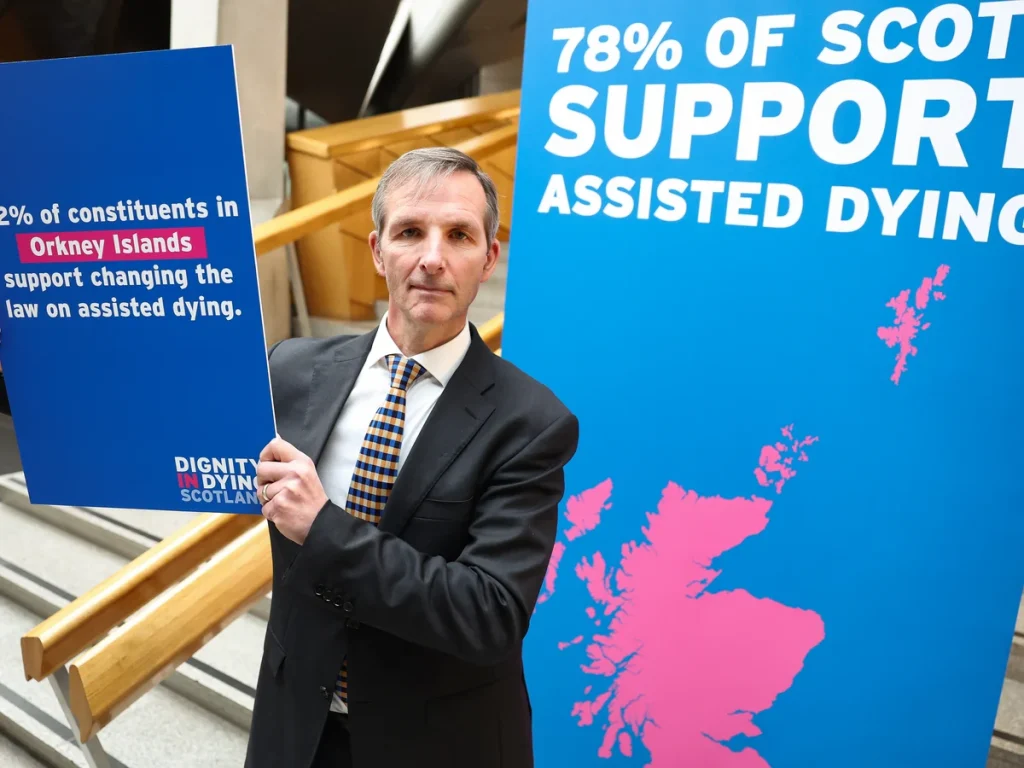UK lawmakers are set to debate the legalisation of assisted dying after Labour MP Kim Leadbeater announced plans to introduce a bill on the matter. The proposed legislation, which will be discussed in Parliament on October 16, seeks to grant terminally ill individuals the option to end their lives with dignity.
Leadbeater, sister of Jo Cox, the Labour MP murdered during the 2016 EU referendum campaign, has championed the bill, saying it offers terminally ill patients choice in their final months. The law, if passed, will apply only to England and Wales.
Prime Minister Keir Starmer had previously pledged to allocate parliamentary time to this issue during Labour’s election campaign in July. Cabinet Secretary Simon Case confirmed on Thursday that the government will allow a free vote on the bill, meaning ministers can vote based on their personal beliefs, and the government will remain neutral on the issue.

Euthanasia remains illegal in Britain, though it is permitted in several European countries. Previous attempts to change the law have been unsuccessful, with the most recent defeat occurring in 2015. However, public opinion appears to be shifting, and efforts to legalise assisted dying are already underway in Scotland, which operates under a separate legal system.
The debate has gained momentum, particularly due to the high-profile campaign led by broadcaster Esther Rantzen, who has terminal cancer. Surveys show growing support for the right of terminally ill people to end their lives with assistance.
Leadbeater emphasised the importance of offering reassurance, relief, and dignity to those facing terminal illness. “Parliament should now be able to consider a change in the law that would offer reassurance and relief – and most importantly, dignity and choice – to people in the last months of their lives,” she said.
In addition to the bill in Westminster, a separate assisted dying proposal is being debated in Scotland’s devolved Parliament. Other British Crown Dependencies, such as the Isle of Man and Jersey, are also moving towards introducing laws allowing assisted dying.
In Europe, Belgium and the Netherlands were the first to legalise euthanasia in 2002, followed by Spain in 2021 and Portugal in 2023.
Assisted dying is illegal in the vast majority of African countries. Laws in countries such as South Africa, Kenya, Nigeria, and Uganda, for instance, prohibit euthanasia, and assisting someone to die is often treated as a criminal offense, punishable by imprisonment.
South Africa is one of the few African countries where the issue of assisted dying has been more openly debated. A few notable court cases have challenged the legal system, asking for the right to assisted dying for terminally ill patients. In 2015, a court in Pretoria ruled in favour of a man seeking assisted dying, but the decision was highly specific to that case and did not set a binding precedent.
Additionally, many African countries have deep-rooted religious beliefs (Christianity, Islam, traditional African religions) that play a significant role in shaping policies and laws. These religious views often emphasize the sanctity of life, making assisted dying largely unacceptable.


